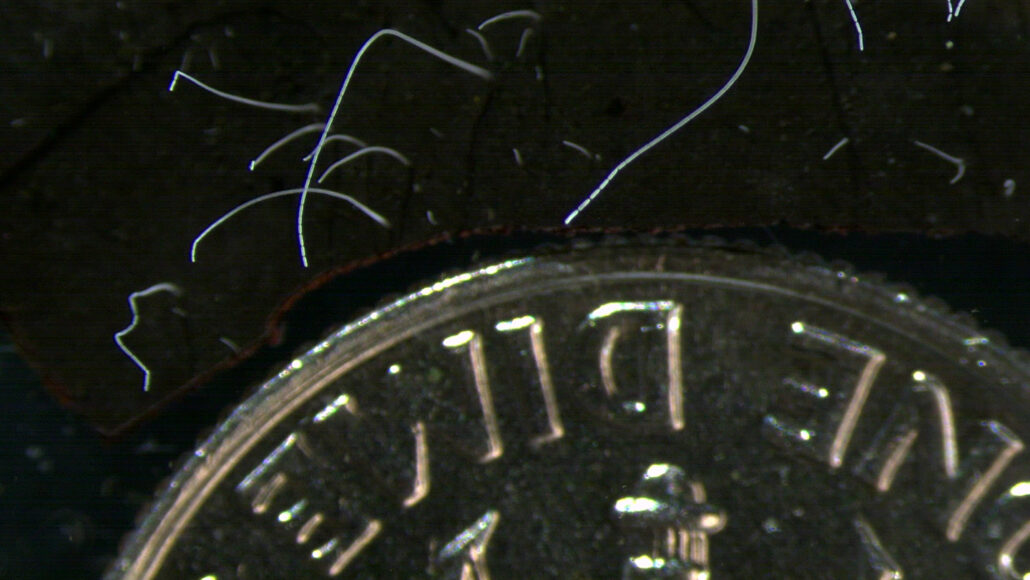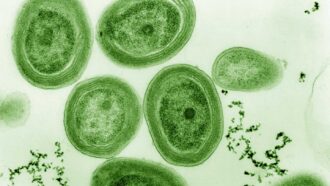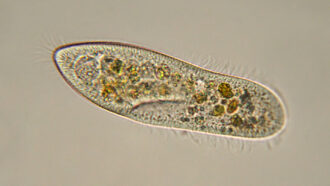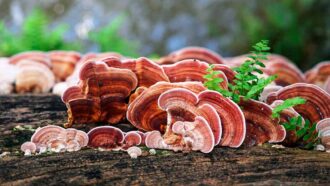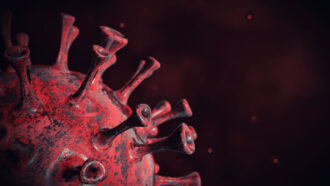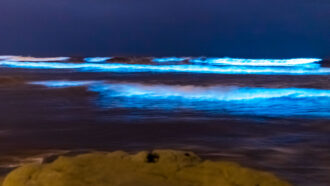bacteria: (singular: bacterium; adj. bacterial) Single-celled organisms. These dwell nearly everywhere on Earth, from the bottom of the sea to inside other living organisms (such as plants and animals). Bacteria are one of the three major domains of life on Earth.
bacterium: (pl. bacteria) A single-celled organism. These dwell nearly everywhere on Earth, from the bottom of the sea to inside of plants and animals.
biologist: A scientist involved in the study of living things.
cell: (in biology) The smallest structural and functional unit of an organism. Typically too small to see with the unaided eye, it consists of a watery fluid surrounded by a membrane or wall. Depending on their size, animals are made of anywhere from thousands to trillions of cells. Most organisms, such as yeasts, molds, bacteria and some algae, are composed of only one cell.
DNA: (short for deoxyribonucleic acid) A long, double-stranded and spiral-shaped molecule inside most living cells that carries genetic instructions. It is built on a backbone of phosphorus, oxygen, and carbon atoms. In all living things, from plants and animals to microbes, these instructions tell cells which molecules to make.
eukaryote: Any organism whose cells have a nucleus. Eukaryotes include all multicellular creatures (such as plants, animals and fungi) as well as certain types of single-celled microorganisms.
genetic: Having to do with chromosomes, DNA and the genes contained within DNA. The field of science dealing with these biological instructions is known as genetics. People who work in this field are geneticists.
journal: (in science) A publication in which scientists share their research findings with experts (and sometimes even the public). Some journals publish papers from all fields of science, technology, engineering and math, while others are specific to a single subject. Peer-reviewed journals are the gold standard: They send all submitted articles to outside experts to be read and critiqued. The goal, here, is to prevent the publication of mistakes, fraud or work that is not novel or convincingly demonstrated.
mangrove: A type of shrub or tree that lives mostly in coastal swamps and usually has long, tangled, above-ground roots.
marine: Having to do with the ocean world or environment.
marine biologist: A scientist who studies creatures that live in ocean water, from bacteria and shellfish to kelp and whales.
microbe: Short for microorganism. A living thing that is too small to see with the unaided eye, including bacteria, some fungi and many other organisms such as amoebas. Most consist of a single cell.
microbiologist: Scientists who study microorganisms, the infections they might cause or ways that they can interact with their environment.
microscope: An instrument used to view objects, like bacteria, or the single cells of plants or animals, that are too small to be visible to the unaided eye.
organism: Any living thing, from elephants and plants to bacteria and other types of single-celled life.
species: A group of similar organisms capable of producing offspring that can survive and reproduce.
